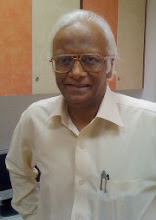MAKING THE DEAD SPEAK!
BY
SANDEEP SHRIVASTWA
Some
enterprising authors have invented the art of making the dead speak, instead of
speaking for the dead. Taken aback by the stunning disclosure, your reasoning
fails precisely when you require it most. In a surge of emotions, the caged
animal suddenly escapes from the zoo!
Imagine
you just read a passage in a book that was widely publicized like Mel Gibson’s
movie The Passion of the Christ. The passage tells you that Edwina Mountbatten
would have her breakfast sitting in Jawaharlal Nehru’s lap. Your imagination
running wild, you don’t think even for a moment of the noble Platonic
relationship the two had. The gullible have already lapped it up, believing the
written word to be the gospel truth.
Television
channels (Times Now included) will soon hold a panel discussion on the Nehru-Edwina
affair. One of the panelists, we are pretty certain, would say the British are
always an action-oriented people and since Nehru had studied at Cambridge
A
seasoned political commentator like Ravi Shankar Prasad would say Mountbatten
used Edwina as bait to get India Kashmir issue to
the UN. One of Delhi
As
the nation watch these debates with bated breath, Arnab Goswami would
triumphantly declare: I am holding in my hand the secret tapes of the
conversation between Nehru and Edwina in a rendezvous, exclusive to Times Now.
From Kashmir to Kanyakumari, the viewers are intrigued.
Jacqueline
Kennedy’s reported remarks on Indira Gandhi falls in the same genre. For all we
know, the US India
If
they don’t have bread, let them eat cake! Who said it, Marie Antoinette? There
is no evidence to prove that she ever said it. The words appear in Rousseau’s
Confessions, his autobiography. The author may have invented the anecdote,
attributing it to the Great Princess. Marie was nine years old when the book
was written in 1765. The Chinese have a similar story, and during a famine the
emperor asked, if they don’t have rice, let them eat meat!
Another
tale of distortion comes from George Washington’s biography. His father
presented him a new axe, and the boy tested its sharpness by cutting down
unwittingly his father’s favourite plant. In the evening, he saw his father
beating the servants for cutting down the plant. Facing his father’s wrath, the
boy stepped forward and admitted to his mistake. This boy when he grew up
became the first President of America! This story is an invention of his
biographer but found its way to Indian textbooks – presumably through American
books – in the 1950s.
Why
Dan Brown made a fortune in The Da Vinci Code by relying on fraudsters like
Pierre Plantard. Born as the son of a butler (described as a cook for wealthy
families in police reports), Plantard manipulated his way up the social ladder
till a judge investigating a major political scandal had his house searched,
which yielded false documents proclaiming him to be the true king of France. Under
oath, he admitted he had fabricated everything. At a time when women and men do
not share the same dining table, Dan Brown saw Mary Magdalene at the Last
Supper, to the exclusion of St John
Truth
is seldom found in Politics and Media!





No comments:
Post a Comment